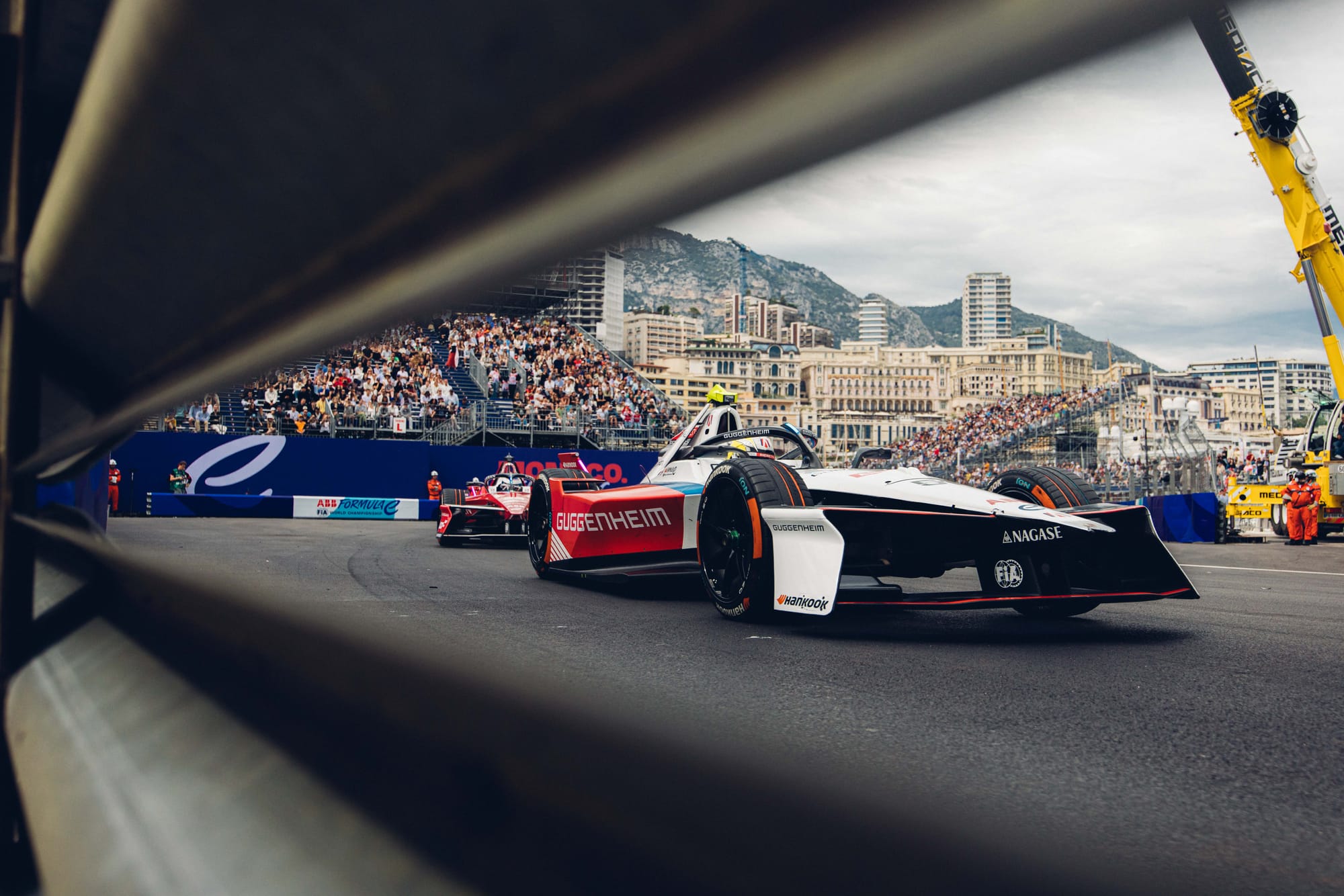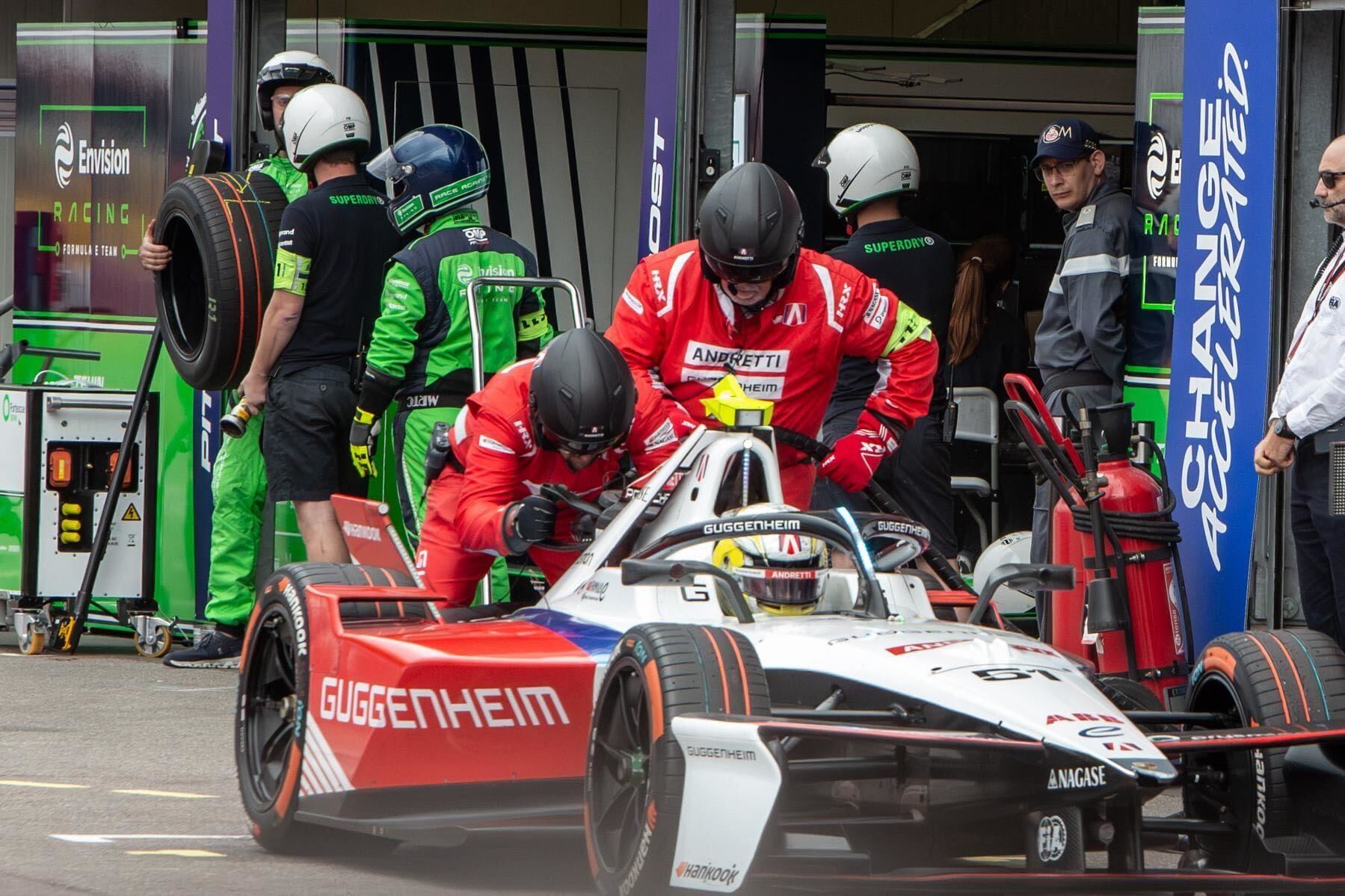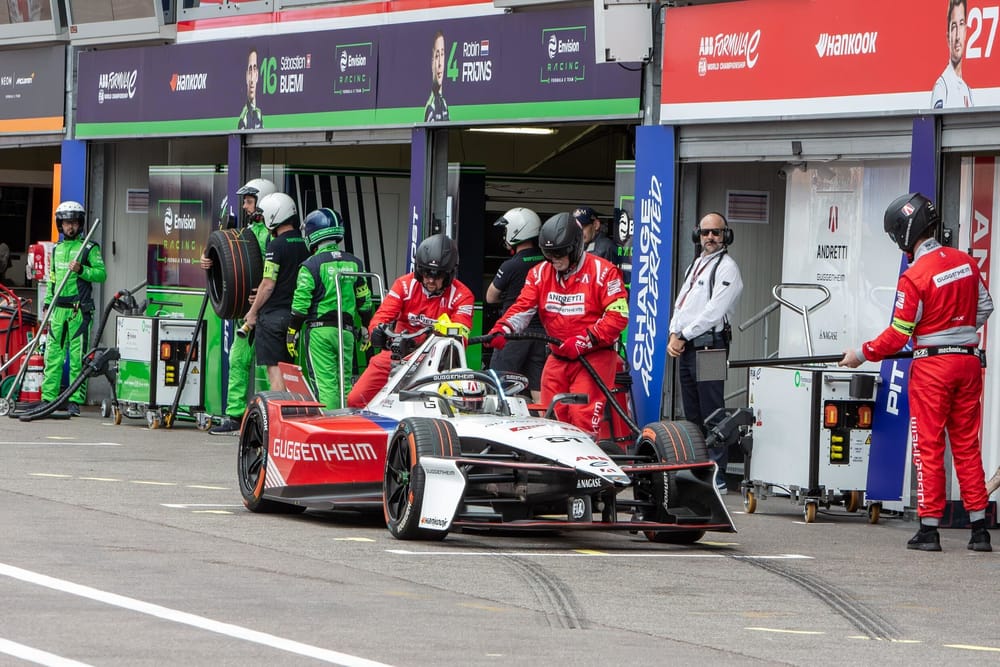Andretti driver Nico Mueller should have been in prime position to win his first Formula E race in Monaco on Saturday but an issue with his mandatory Pit Boost application compromised that prospect and contributed to him ending up fifth instead.
Mueller appeared to have his race completely wrecked when he picked up a punctured right rear Hankook tyre after contact on lap two.
After that Mueller elected to take an early Pit Boost stop and as he did so a full course yellow to retrieve Mitch Evans's parked Jaguar was displayed.
This allowed Mueller to complete his Pit Boost stop and make up a huge amount of time on the field as the bypass style pitlane of Monaco, which intersects the final Anthony Nogues corner, allied to the field being reduced to a 60km/h (37mph) limit under FCY rules meant he was able to take a net lead after effectively going off strategy to the rest of the field. Only he and Nick Cassidy were in a track position situation that allowed them to pit at that point.
But Mueller's stop was in fact compromised because a problem with the spec Pit Boost device meant that he was unable to actually receive his 3.85kW energy boost. As per the rules Mueller then had his energy added remotely and accordingly.
"We had an issue in the pit boost sequence, which ultimately ended up with [team-mate] Jake [Dennis] needing to use the FIA spare charger," Andretti team principal Roger Griffiths confirmed to The Race.
"The problem that you have is that when the boost charger doesn't transfer the energy to the car - and the reason is still being explored - the FIA is able to manually update the car with the energy.
"But what they're not able to do is to increase the state-of-charge [SOC]. So, whilst you've got the energy in the car, you don't have the state of charge in the car, and so you ultimately put yourself in a situation where you're most likely to derate on SOC which is what happened to Nico as he crossed the line and [Edoardo] Mortara pipped him there."

Mueller had emerged from his pitstop with a significant net gap to eventual winner Oliver Rowland but that gap was depleted when he was, according to his team, forced to manage the pace so the Andretti Porsche didn't derate in the final exchanges.
Initial investigations by Pit Boost equipment supplier Fortescue Zero engineers on Saturday night suggest that nothing on the charger itself physically malfunctioned and it will be used again after the specific issue was understood and addressed.
"Fortescue Zero regrets the unacceptable impact this has had on the Andretti team and has immediately acted to investigate and rectify the issue," the firm said in a statement, in which it also emphasised that the other chargers all worked correctly.

(Pitstop images courtesy of Emma Ridgway)
"In-depth diagnosis of Andretti's Pit Boost has already been completed and an update to resolve the issue has immediately been put in place and will be rigorously tested by the Fortescue Zero team ahead of the next race in Tokyo."
Had it not been for this issue, Griffiths reckoned that "we could have quite comfortably won the race with Nico, which is ironic when you have a puncture and you're suddenly off strategy in a weird sequence".
Another problem occurred on Pascal Wehrlein's Porsche at his mandatory stop, although this was believed to have cost the reigning champion just a few seconds and was centred upon the fixture of the boosting device not being plugged in smoothly. This in turn is known to have triggered a quick shut off system which caused the few seconds of his stop to be lost.
Wehrlein told The Race that his team "plugged in the charger, the car didn't charge and the countdown didn't start. We took off the charger again and plugged it in again and then it worked. But we had by far the slowest pit stop".
Monaco was the second time that the Pit Boost has been used after a largely successful first adoption of it in Jeddah in February, although the Andretti team did also encounter an issue on that occasion too.
When asked if key points need to be raised about the reliability of the equipment after the Mueller incident, Griffiths sounded caution.
"We need to understand the situation and then make a sensible decision as to what the next steps are.
"Is that more testing? Is that reviewing whether it continues or not?
"Certainly, it adds a spice to the races that none of us could ever anticipate. We always were concerned that a spec component in the championship could have a dramatic influence, positively or negatively, on the outcome of a race.
"I think we've seen in our case it did have a negative effect and we could well have won the race today."
"We had to effectively tell the car that it had less energy available than it actually did," added Griffiths.
That meant Andretti had to slow Mueller down because it knew that he was going to run out of state-of-charge before he ran out of energy.
The team had to "artificially tell the car to do something different" according to Griffiths and "had we had that state of charge we wouldn't have done that and he would have been running at a much faster pace."
The need to switch to the FIA's spare charger for Dennis's stop also caused a scramble.
"We basically had to tell Jake, probably [when he was] around the Swimming Pool, that we were switching to the other charger so we had about 20 seconds to get down there."



